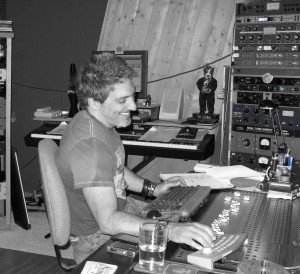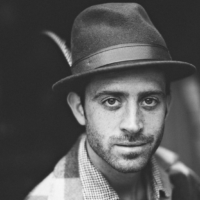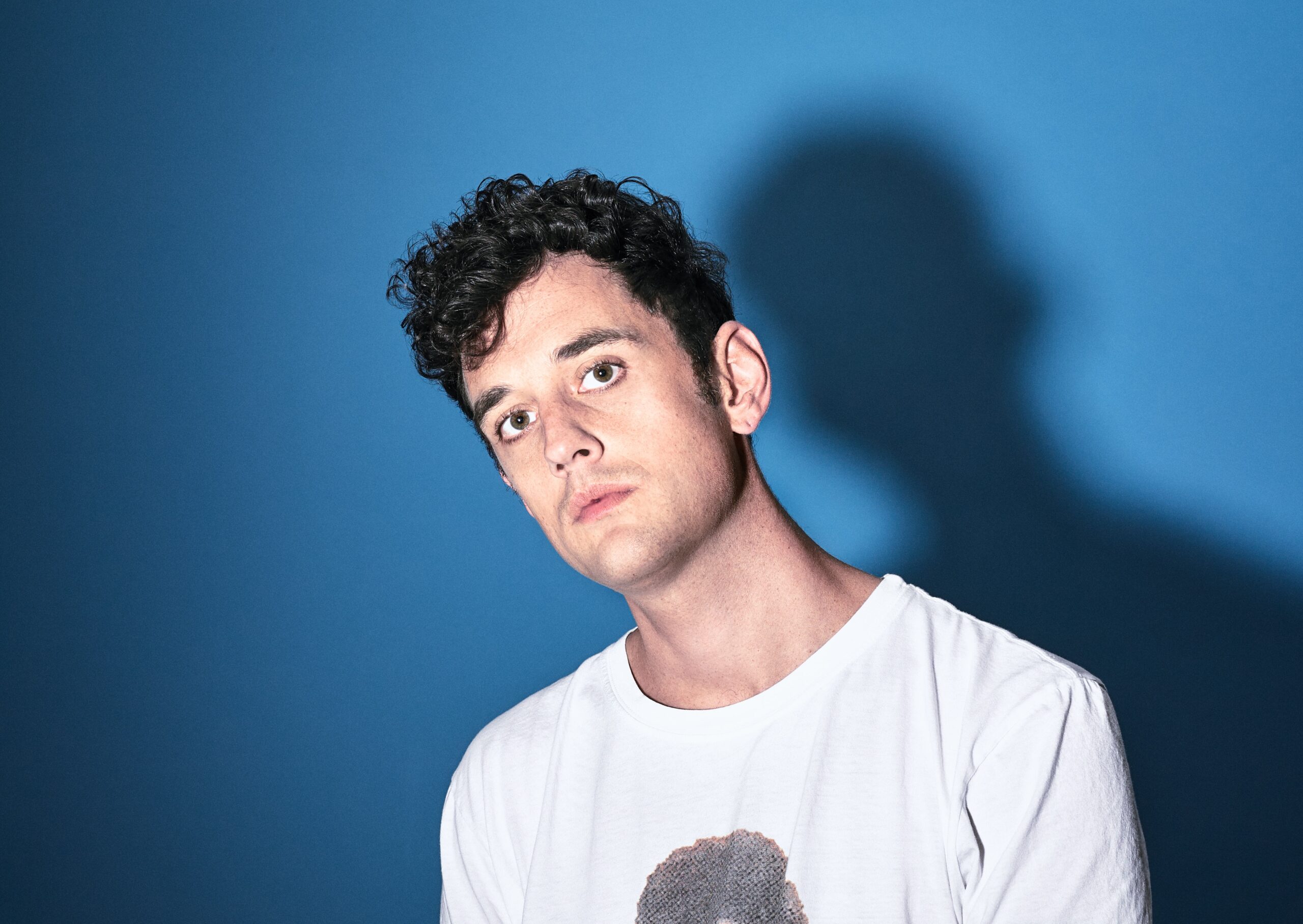
Advice from a Producer/Mixer
Thom Russo is a 13-time Grammy® Award-winning engineer, producer and mixer. He first developed an interest in audio production as a conservatory student at Northwestern University studying percussion and theory, when he spent as much time as he could in recording studios around Chicago learning the ins and outs of different technologies and production tools. He started his professional career working on everything from jingles to classical, jazz and R&B projects at River North Studios in Chicago, eventually accepting a staff position at Larrabee Sound, one of L.A.’s largest recording studios. After he had built up a repertoire of experience, he branched out on his own. During the past two decades, he has worked with major artists such as Michael Jackson, Babyface, Prince, Audioslave, Eric Clapton, Ke$ha and Johnny Cash, songwriters including Rhett Lawrence (Kelly Clarkson, Mariah Carey) and producers such as Teddy Riley, Bruce Swedien and Rick Rubin.

I sat down with Thom and talk about his career in the music industry, some advice he has for those that want to get into professional audio production and a few tips for artists trying to choose the right engineers, producers and mixers for their projects.
Music Consultant:
Thanks for taking some time to talk to me, Thom. Tell me a little bit about how you got started in the music industry?
TR:
I was a musician for a very long time. The short of it is, I decided to take the path of studying music at a higher level. I was conservatory trained at Northwestern University. I realized that I was gravitating towards modern music production. That was something I randomly started to be attracted to, which I guess isn’t any different from any kid who is listening to a lot of music when they’re growing up. It was convenient for me to get a heavy music education while going into something that was more modern technical musical production.
I entered Northwestern in percussion and theory. I was a keyboard player my entire life, but my major was in theory. It happens in the arts a lot of times, where people say their education was wasted. But I can gladly say that was not the case for me. Just as I think actors will go and learn Shakespeare and then never use it when they are out in the working world, there is something of that language in the delivery of that that they use, and it’s the same with me. There’s something of the language I learned while I was an 18-year old kid that I use daily, if not consciously then subconsciously.
Music Consultant:
I know a lot of people that don’t believe in a formal music education. But I think you need to know the rules before you insist on breaking them.
TR:
It’s exactly that. I think it’s certainly something where you should know them and then should break them. That said, I don’t think it’s for everybody. But a lot of times it can be, specifically for a guy like me. I knew I loved the art form, but I didn’t know what I wanted to do. After I started to educate myself more and hang out with different types of people in different genres. Through that I found myself stumbling into a recording studio when I was 20-years old in Chicago. That was the first time I’d had an experience with it, and it was like the Holy Grail seeing everything happen. My head exploded, because at that point I thought, “Wow, this is how things are made.”
This was before I was working. I was just a kid playing in bands and spending a lot of time in headphones listening to everything. My choice of styles was always very diverse. I listened to Pink Floyd, Steely Dan and Prince and sometimes heavier stuff like AC/DC. But I didn’t know how stuff was made until I started hanging out in the studios and started being a fly on the wall as much as I could. I started completely from the bottom, up, which kids still do today. I recommend it highly. I was getting tea and running errands for folks just so I could hang out and see how things were made by professionals and semi-professionals.
Music Consultant:
What was the first studio that gave you your shot at being a working engineer?
TR:
It was in Chicago. I started an intern program at a big studio in downtown Chicago called River North Recorders. While I was finishing up my education I was spending three or four days a week for four or five hours a pop down there, not only getting tea for folks but really learning the ropes. My days were easily 15-16-hour days between going to class and riding the subway to get there. But it was great. I was super hungry, and it made all the difference in the world, because immediately I took a job there as a staff engineer when I got out of school at 21-years old. It was great. I didn’t know anything. The studio is no longer in existence. But I was working on as high-profile projects as could be done in Chicago, which consisted of a lot of commercial and advertising work like jingles, etc.. It was buttered up next to whatever was going on in the Chicago scene then, which was a lot of industrial, house and some R&B. It was very interesting, because my education in terms of modern music production was getting a huge bath there, because the work was so variable. One day we’d be doing a full band for a McDonald’s commercial, and then I’d be working with some crazy music project. It was very interesting and diverse, which is great.
I worked there for a good three or four years before I wanted to gravitate towards one specific side of music production, which was really records. I was mostly interested in making records and going into that actual field. So, I started to visit L.A. and poke my nose into different people’s business in recording studios out here. Luckily I had made enough professional connections while I was in Chicago that folks hooked me up with different individuals at different studios here in L.A. My resume was stacked up enough that for some reason, it was the right place right time. I got job offers from Larrabbee Sound and Ocean Way Recording, which were both big studios that needed help at that time. And my education had been one where I had my chops together. I chose Larrabee, and before I knew it, I was 25 or 26 and had a job at an enormous recording studio in L.A., and I made the move.
Music Consultant:
And was there a specific record that really jump-started your career?
TR:
Within the first two or three months I was at Larrabee, there was a guy working in the studio next door to me named Michael Jackson. And he was working on a record called Dangerous. It’s laughable how lucky this was, and it would’ve been lucky for anyone. I bumped into him in the hallways along with all the other cats that had been working on it, which was Bruce Swedien and Teddy Riley. Everybody was already on the gig, because he had been working on the record for three years at that point. It was something where we just got to talking, and he just said, “Why don’t you come on board to help us out, because we have more than enough to do right now. I got pulled into that boat and worked on that record for about a year and a half. And that even turned into something that was more bizarre for a young guy that had just come to town. Not only was I part of the engineering team on it, but then Sony Records was getting super frustrated that the record wasn’t getting done, and there was a huge deadline, and it had to be put out in September. And it was June, and everybody was saying, “We have to finish these mixes and these vocals.” And Michael was still writing lyrics on at least three quarters of the record. So Bruce, the executive producer said, “You have to go with Michael to this other studio, which is Record One in Sherman Oaks and sit with him for the next month and a half and record all the vocals.” And that’s what I did. Again, I had been in L.A. for about four or five months at that point. It was certainly one of the most bizarre things that had ever happened to me, but in a good way.
Music Consultant:
And after you had a Michael Jackson credit, I assume doors started opening left and right.
TR:
They really did. And I was young, didn’t know anything about the business, but I definitely had my technical chops completely in line. I was nervous. But I was more nervous about how I was going to interact on a personal level. I knew that whichever format we were recording to – and we were on tape at that time – whichever console, etc., I was going to be okay. Truth of it is, and this is certainly something kids should know about: Getting your technical chops together should be a primary focus; because that’s something you learn, and then you just forget. It doesn’t matter where you are or how you are; as long as your chops are really together in every genre and format, you’re going to be ahead of the game for sure. You should never be thinking about, “How or why or when do I do this?” It should be something that is rote.
Music Consultant:
When did you make the leap from house engineer to being out on your own?
TR:
It was a very natural thing where so much work started to come my way that I decided to go on my own. This was over 20 years ago, and now it’s a little different. There are now such a small number of people that are staff engineers, doing what I did in house. Now when artists are making big records, they’re usually seeking out individuals who are independent contractors. After realizing that being on staff was holding me back, I went out on my own. I started mentoring under a lot of great people, like Rhett Lawrence. I worked with him for a lot of years and started to co-produce with him and work on his tracks. He was spending a lot more time songwriting and working on melodies and lyrics, and I’d be working on beats for him and mixing. It became a lot more of that than it was spending time working with anybody that would show up at the door.
Once I was an independent contractor for long enough, I started to seek management, and they were seeking me out at the same time. I started working with Netwerk Music Group; I’ve been with that company for about eight or nine years. And the first project they recommended me for was with Macy Gray, who I ended up completely hitting it off with. We worked on a couple of projects together.
Music Consultant:
You’ve had a phenomenal run and have bounced through word of mouth from being a kid in a studio, to a studio engineer, to a guy that has now been running his own business for a lot of years and has serious professional management. You alluded earlier in your story to the fact that you knew nothing about the business. We all start in this business with a lot of other people at the starting line. The numbers end up being significantly thinned out as time goes on. What is the difference between someone like you, who has carved out a career – other than chops, which are a given – and someone who fell by the wayside?
TR:
After you learn all the stuff that is pretty obvious – the technical skills and musical skills – you have to get around something that is less obvious, but needs to be learned: the people skills. On a day-to-day basis, I have to deal with this entity called “artists.” Beyond just dealing with this entity called “artists,” I have to deal with this entity called “music business people.” A lot of times I’m in the middle, and a lot of times I just have to play good cop/bad cop. It’s a balancing act.
I think the most important thing is always keeping your eye on the finish line. That means that one day when the artist isn’t feeling something and doesn’t want to sing, you have to find something else to push the project along to get it ready for a strict June 1st release.
Music Consultant:
So, to be successful, you need to be able to deliver, regardless of obstacles or excuses.
TR:
And that’s only one side of it. The other thing is, you have to be very patient. And this is a rule in life too, but you have to try not to take things personally. Very frequently I’ll be in a circumstance where I’ll hand a mix, song, track, etc. over, and it’s great, and I think it’s going to change the face of modern music. But it’s not received for whatever reason. Or I’ll go for a gig that I don’t get. If you take everything personally, it’s a very difficult industry to be in. That’s the truth about the entertainment industry in general. It can be very fickle. The most important thing you have to realize is that it’s not about you; it’s about the music.
Music Consultant:
What advice do you give to young engineers, since there aren’t as many big studios anymore? It seems like a lot of stuff is happening in home studios now, and the educational opportunities in the last 10-15 years have diminished significantly for a lot of reasons.
TR:
A lot of guys I’m running across now seem to have the same problem/shortcoming. First and foremost, it is good for any young person out there to have a good education of just audio. It sounds boring, but it is integral to understand the way things worked way back when, when there were big consoles and when there was tape – the way things worked in Motown and even before that. You even need to know how things were made when the Beatles made Abbey Road. To understand that makes our world of computers that much clearer and better. I do meet a lot of guys now that have never really set foot in an actual recording studio. For me, that is such a strange thing. I consider myself lucky, because I was coming up when I got to see all old school stuff. And then the old school stuff went away, and now it’s the new school stuff, which isn’t really going to go anywhere. I really believe that this is how records are going to be made ad infinitum, for the rest of history. I can also say it’s impossible to say that the big studios will all go away, because technically that is impossible. There will always be a need for super high-end, class A, high-fi environments of that nature; because obviously, audio needs to be captured, be it an orchestra, rock band or solo vocalist. My sweeping comment is that you need to have an education to understand the history of the technology that you’re using.
To get very specific with an example, say you’re in your Digital Audio Workstation and you pull up an equalizer or compressor, and you know how that plug-in works. But do you really know how the original worked? You can learn what the model does in the computer, but you have to understand that it’s just a model. And it’s a great-sounding model. And it’s fascinating and unbelievable, especially for a guy like me, that stuff like this sounds as good as it does. And it’s also extremely convenient, hence the nature of the business right now. It’s great for me, because I can be working on three or four things at a time.
Music Consultant:
You also have a lot of perspective on the musician side of things. What should artists have already prepared before they even start knocking on doors of engineers, producers or mixers?
TR:
Preparation is a broad topic, but I tell a lot of young bands the same thing. And a lot of times they don’t believe it. Very frequently folks are shy about playing me their very rough, sonically trashed-out demos. And I can say with a resounding scream that it’s never something I’m looking for. I’m not looking for something that sounds like a record already, because that’s the easiest thing for me to work on. I can make something like that sound great in a matter of hours. But for musicians, the best thing to do is have your best foot forward in terms of songwriting and be as specific as you can be about your goals. I don’t care if you’re a solo artist or a band. The most important thing is to know what you want to be. Not that you need to necessarily categorize yourself, but put what you’re going for in your mind. And that can be a million things with a million different influences. I think the artists I gravitate towards the most when it comes to people I want to work for are the ones that really know what they’re about, and have done their homework in terms of being an artist. You should have an established identity and a goal, and you should be able to present a bunch of records you like the sound of.
Music Consultant:
And you don’t want to have to turn around to a band and tell them what they want, especially today where all this information is readily available.
TR:
Absolutely. If you’re a big, thick rock band, but you want a record that sounds like Gnarls Barkley, then cool. That’s what you should be going for. But you need to have that in your mind and your language when you talk about what you’re looking for.
Music Consultant:
What advice would you give to artists that are trying to select an engineer, producer or mixer? How do they find people of quality like you?
TR:
They really just inquire. I like that in the past couple years, bands are just starting to inquire to me. What I can tell anyone is, don’t be afraid to approach veterans. We’re just out there looking for great music, just like everyone else. Sure it happens sometimes that the labels call me and say, “Hey, I’d like you to work with this person.” But 50% of my work now is bands and artists that contact me and say, “Hi, I heard your stuff. I really want to work with you.” And that’s great. I can also tell you that all my compatriots that have been in the industry a long time feel the same. They’ll tell me, “This artist approached me and is great, and I’m going to start working with them.”
If you want to learn more about Thom Russo and his many projects, check out his thomrusso.net








